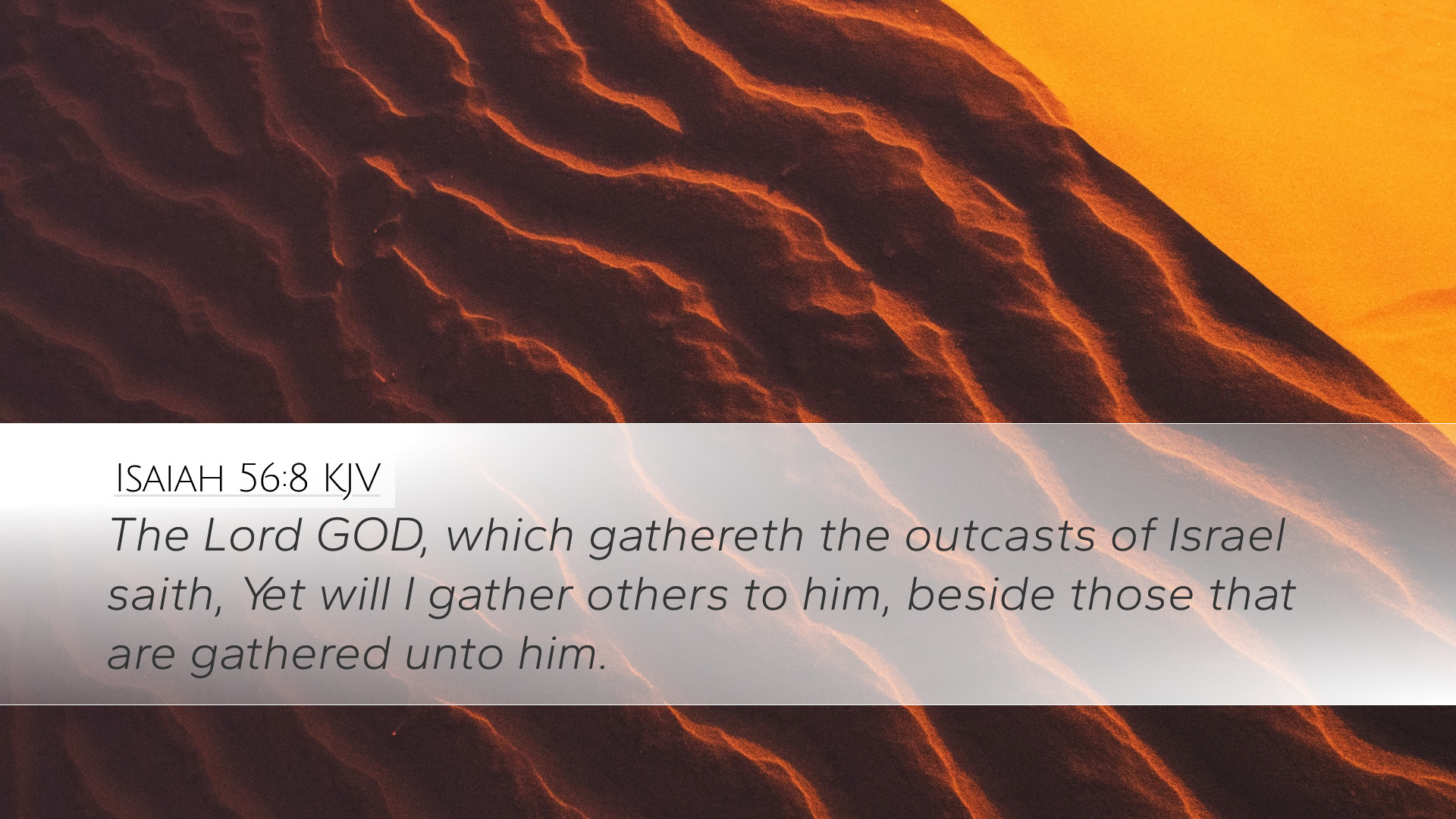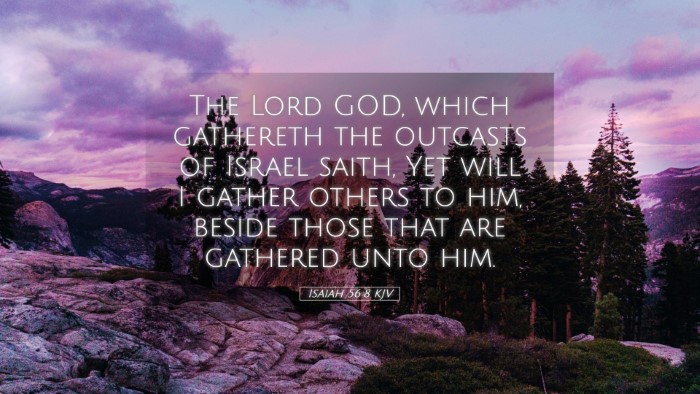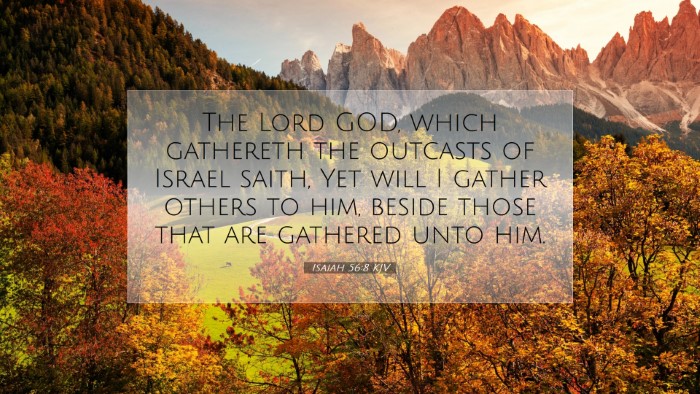Commentary on Isaiah 56:8
Isaiah 56:8 states: “The Lord GOD, which gathereth the outcasts of Israel saith, Yet will I gather others to him, beside those that are gathered unto him.” This verse carries profound implications regarding God’s nature, His overarching plan for salvation, and the inclusivity of His grace. We will delve into various commentaries to explore these facets more deeply.
Contextual Background
This chapter of Isaiah emerges amidst themes of restoration and inclusion. The prophet Isaiah speaks to a people who have faced exile and alienation. It is within this historical and spiritual context that God promises restoration not only to the outcasts of Israel but also to Gentiles, signifying a universal offer of salvation.
Insights from Matthew Henry
Gathering the Outcasts: Matthew Henry emphasizes God’s compassion towards the outcasts. The use of the term "gathereth" illustrates God's active role in bringing His people back. Henry notes that the outcasts here represent those who have been marginalized, whether through sin, disobedience, or the repercussions of exile.
Inclusion of the Gentiles: Henry identifies a prophetic foresight in this verse that signals the expansion of God’s covenant community to embrace the Gentiles. His commentary highlights the radical nature of God's promise to gather "others" beyond the immediate boundaries of Israel, illustrating the depth of divine grace.
Insights from Albert Barnes
The Character of God: Albert Barnes elaborates on the phrase "the Lord God." He points out that this title emphasizes God's sovereign authority and His paternal care for His people. Barnes draws attention to the relational aspect of God’s gathering, framing it as a familial reunion.
Gathering Others: Barnes further explains that this gathering of others signifies the mission of the Messiah. He indicates that Jesus fulfills this prophecy through His ministry, which expands the promise of God to all nations. For Barnes, the verse encapsulates a theological transition from a solely ethnic understanding of God’s people to a more inclusive view that welcomes those from every tribe and nation.
Insights from Adam Clarke
Theological Implications: Adam Clarke’s commentary dives into the implications of the gathering process. He notes that the phrase “outcasts of Israel” signifies those who have been estranged from the community of faith. Clarke argues that this is a profound demonstration of God's mercy, reflecting His willingness to restore the broken and outcast.
Universal Call: Clarke emphasizes that the gathering “beside those” denotes an open invitation to all humanity, underscoring the essence of the Gospel. He suggests this gathering is not limited to a physical return but also involves a spiritual regeneration that invites all to become part of God's family. Clarke sees this as a foretaste of the New Testament calling of the church to be inclusive and welcoming.
Theological Themes
- The Nature of God: Each commentary highlights the compassionate and inclusive nature of God. His desire to gather the outcasts reflects a deep, abiding love that transcends human limitations.
- Restoration: Central to this verse is the theme of restoration, as God promises to reclaim those who are lost, reflecting His unwavering commitment to His covenant people.
- Inclusivity of Salvation: The promise of gathering those beyond Israel signifies the availability of salvation to all, showcasing the inclusive nature of the Christian faith.
- Hope and Encouragement: This verse provides hope to those who feel marginalized or abandoned, as it reassures them of God’s attentive and restorative heart.
Conclusion
In conclusion, Isaiah 56:8 stands as a beacon of hope and inclusivity within the biblical narrative. Commentaries from Henry, Barnes, and Clarke illuminate the depth of God's promise to both restore His people and to invite others into fellowship with Him. This verse is a powerful reminder for pastors, theologians, and students of Scripture about the expansive nature of God’s love and the call to embrace all who seek His grace.


